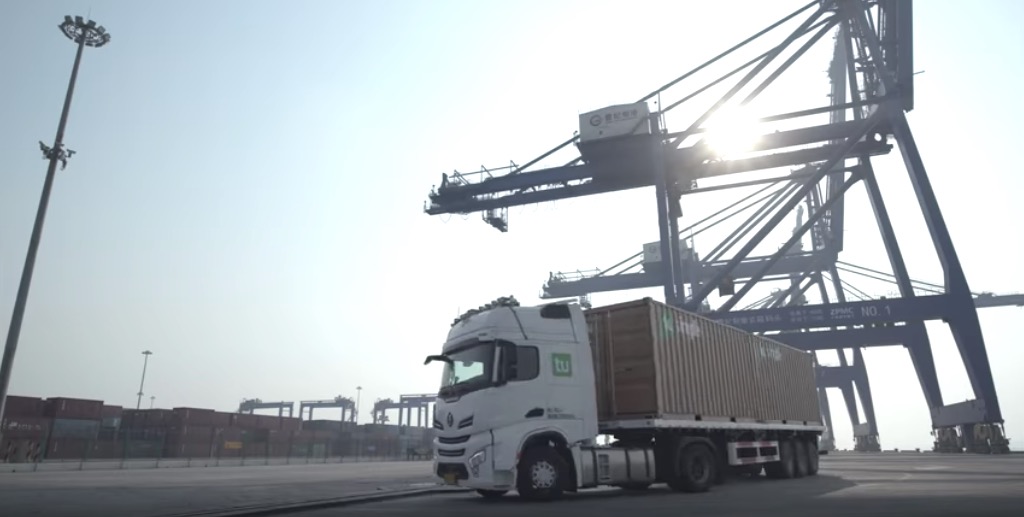
TuSimple to launch autonomous truck for port logistics
A startup company called TuSimple is said to be ready to launch its autonomous truck for logistics operations at seaports in China. (See video below.)
This is according to a report in the South China Morning Post, which says the company is in talks with 10 ports in the country and is just a couple of months away from rolling out is first driverless truck at one of those ports, possibly more.
The company has already conducted debut trials at the National Intelligent Connected Vehicle Pilot Zone in Shanghai, where the port is the second-busiest in the world.
TuSimple is a Chinese company with big-name investors in the US, including chipmaker Nvidia.
It was founded in 2015 and has so far raised $55 to develop its autonomous truck technology, which the company has already demonstrated at various trade shows, including at CES earlier this year alongside Nvidia.
TuSimple’s trucks have what is referred to as “Level 4 autonomy”, which is defined by the international engineers’ association SAE as being “high automation”.
SAE’s full list of automation levels goes from 0 for no automation to 5 for full automation.
TuSimple has around 100 employees and has US headquarters in San Diego, California, and Chinese headquarters in Beijing, China.
Many observers say that autonomous vehicles are more likely to be seen first in the logistics sector because they will mainly operate within restricted areas, such as ports or industrial estates or mines.
A number of companies – including startups like TuSimple and established auto giants such as Daimler-Mercedes – are developing autonomous trucks which are likely to be rolled out in the next couple of years.
The only thing holding them back seems to be regulatory authorities and governments who are concerned that they are not safe enough around other traffic.
Industry technologists say driverless vehicles are ready for public roads and, in fact, will be safer than human-driven cars.
But the public is yet to be convinced for all sorts of reasons.
However, if they are kept in private restricted areas such as ports and mines, where there are either relatively few or no humans, then health and safety rules are pretty much the only things to be considered, rather than other rules of the public roads.
As quoted by South China Morning Post, TuSimple’s co-founder and chief operating executive, Hao Jiannan said the company was concentrating on ports.
“Autonomous logistics solutions will be more cost efficient for ports,” said Hao. “It represents the trend to follow in the future.”
Xue Jiancong, assistant president of TuSimple, said: “We are preparing for a full commercialisation by 2020.”


